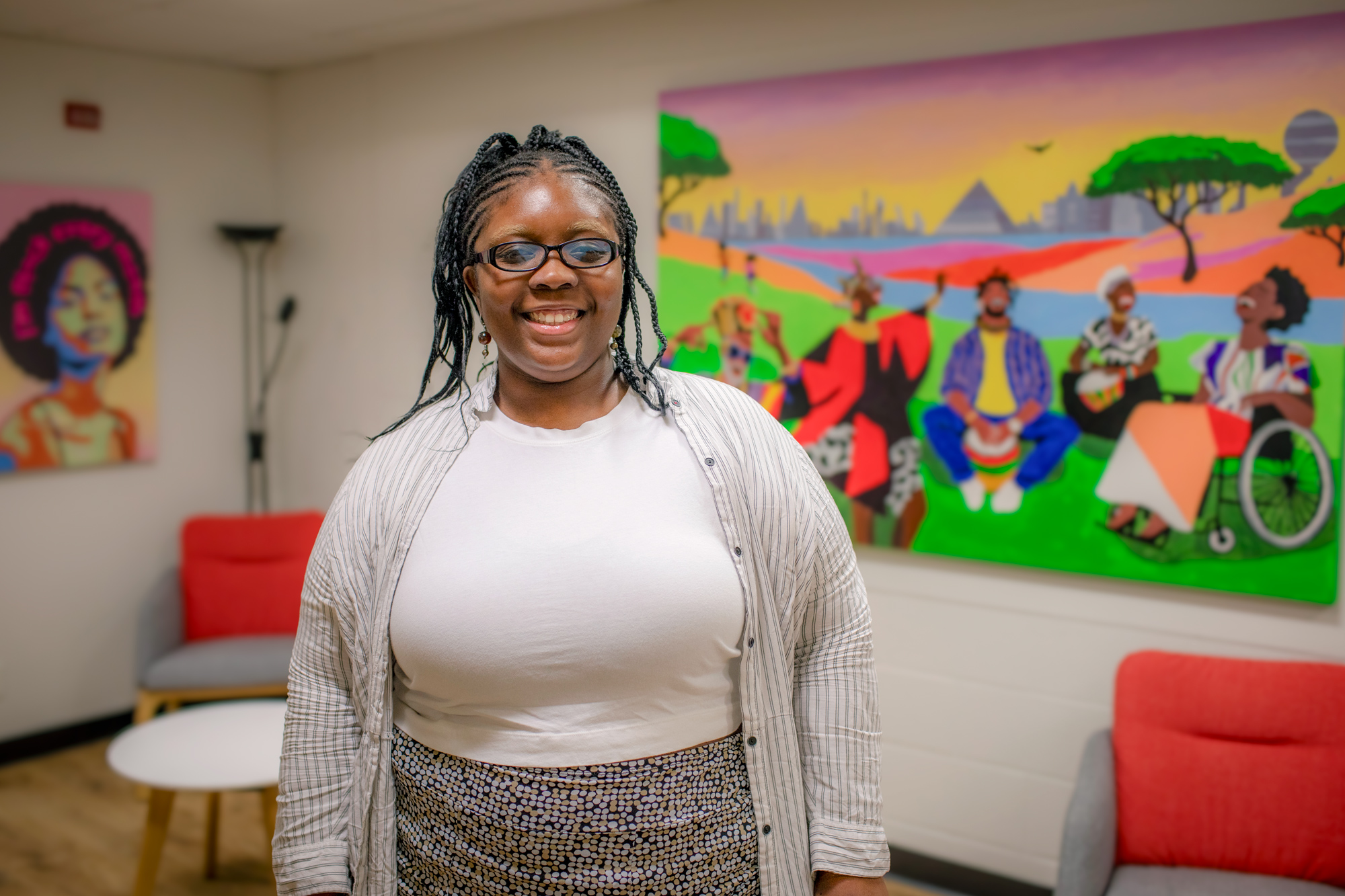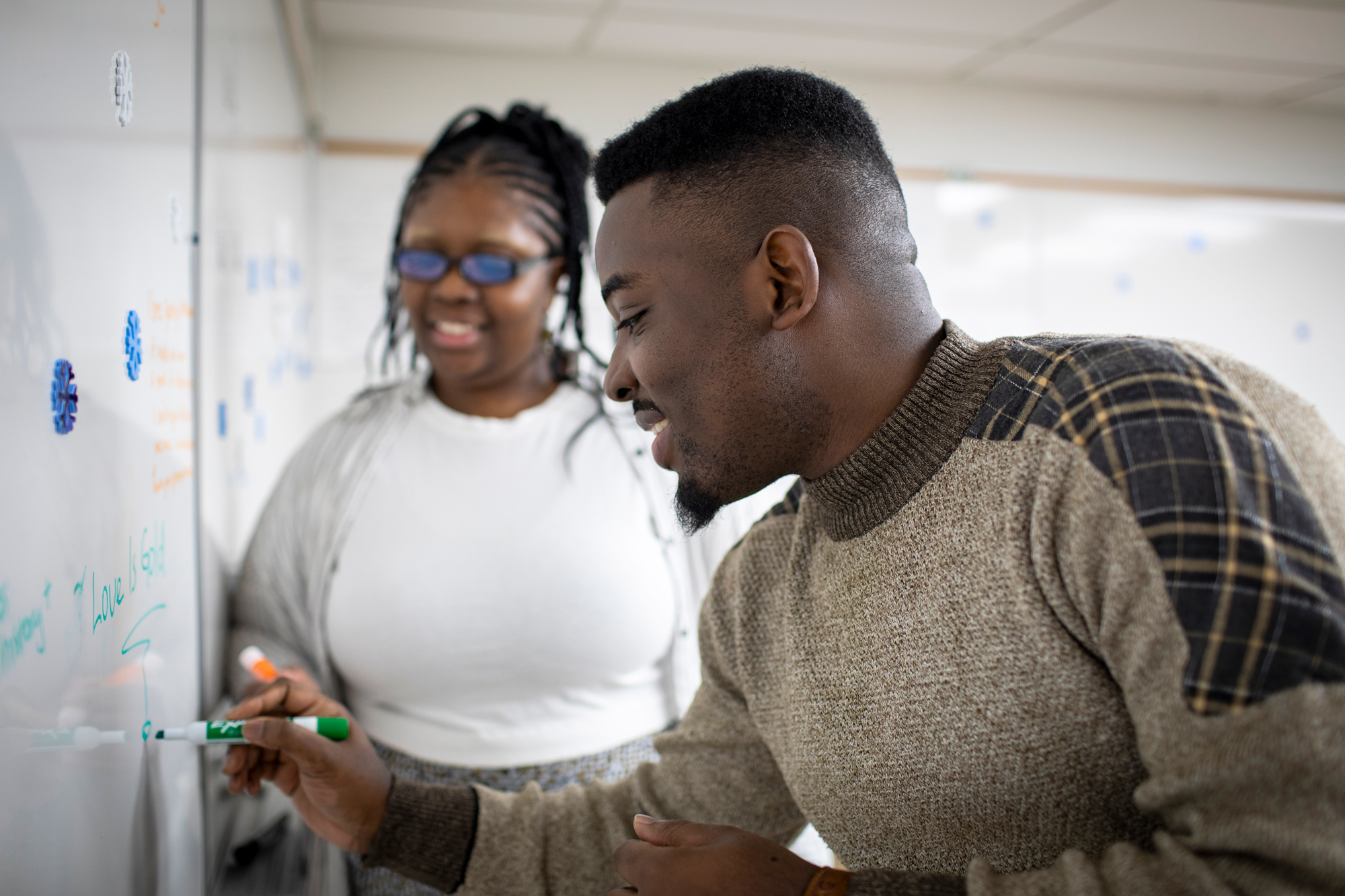When Susie Mensah arrived at George Brown College (GBC) as a small-town student, she found more than an education – she discovered a community that would help shape her future career path. Now, as the Black Futures Initiatives (BFI) Coordinator, she's creating that same sense of belonging for a new generation.
"We are each other's harvest; we are each other's business; we are each other's magnitude and bond," Mensah quotes writer Gwendolyn Brooks, reflecting on the communal values that guide her work at the college.
Creating space for Black Futures
Since graduating from GBC's Social Service Worker program in 2016, Mensah has worked with local organizations, honing skills in community work, harm reduction, and anti-oppressive practices before bridging into a degree program. When the opportunity arose to return to GBC to work on an initiative that spoke to her heart, she had to go for it.
Joining the college this past September, Mensah now oversees The Gathering space – a campus hub where Black students and staff can fully be themselves. "The space is meant for people to use in whatever capacity they need," she explains. "It's about the visibility of Black community members, our impact, and our legacy here at GBC."
Empowering the next generation
BFI is working to go beyond traditional diversity programs and embrace the concept of Reworlding—reimagining community, interpersonal, educational, and political possibilities. " Black Futures is about acknowledging the systems that aren't working for us and building something new. A world where Black folks don’t just survive but truly thrive. At the heart of it is imagination: picturing futures that don’t exist yet, ones that break free from colonialism and oppressive ideas that hold us back. It’s about creating spaces that are empowering and welcoming of all Black perspectives."
Since returning, Mensah has also noticed a change in how higher education institutions approach diversity. "When I was a student, many of these supports like the Black Student Success Network and BFI did not exist," she recalls. "Now, we're able to talk about inclusion, diversity, and oppression in more meaningful and liberating ways. That's why our Gathering Space at St. James is so important. It's become a hub for learning, community building and healing. “
One of the most inspiring changes she has observed is the increased representation among faculty. " I notice a lot more faculty from diverse lived experiences and social locations," she notes. “Students come in and tell me how cool and exciting it is that their professor is a racialized person. That representation is awesome."
Looking forward with hope
Mensah's vision for Black Futures extends far beyond a single month of recognition. "My hope for Black Futures is a future where Black folks are limitless,” she shares. "I hope we bring innovation and joy to the college space, spark meaningful conversations, and create a deep sense of belonging that students can carry forward beyond GBC."
For institutions aiming to support Black excellence year-round, Mensah emphasizes the importance of genuine engagement and dialogue from intersecting identities, including Black queer, disabled, and trans perspectives.
She views this role as an essential part of a larger movement to create lasting and impactful change in higher education. Through her work, she hopes to cultivate a future where Black excellence is not only celebrated but also empowered to thrive.
George Brown College Black Futures Month celebrations continue throughout February. Organized by Black Futures Initiatives with support from the Office of Anti-Racism, Equity and Human Rights Services and other college departments, the entire GBC community is invited to this month's events. Learn more at georgebrown.ca/black-futures.


